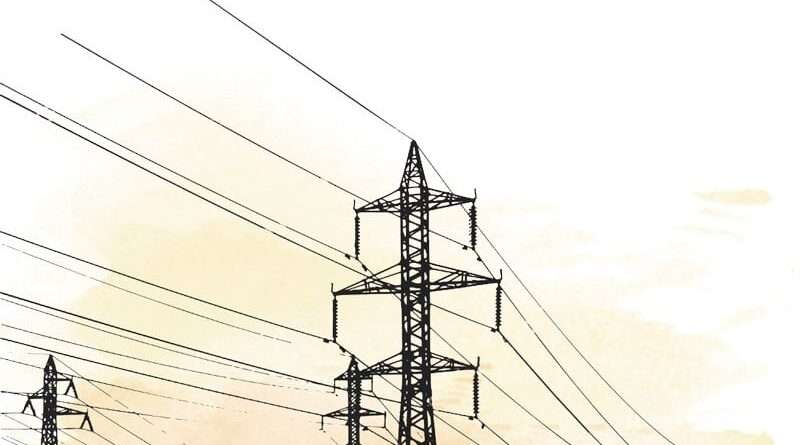Asset Transfer and Audit Settlement for DISCOs in Pakistan
|
Getting your Trinity Audio player ready...
|
Introduction
Pakistan’s power sector is in the midst of a transformative phase, with significant attention being paid to the privatization of state-owned power distribution companies (DISCOs). A crucial aspect of this privatization is the resolution of issues related to asset transfer and audit settlement. These issues must be addressed to facilitate the smooth transition of DISCOs into the private sector. This article explores the ongoing discussions and measures taken by the Economic Coordination Committee (ECC) to resolve these critical issues and pave the way for the privatization of DISCOs.
The Role of ECC in Resolving DISCOs’ Asset and Audit Issues
The Economic Coordination Committee’s (ECC) Meeting and Priorities
The Economic Coordination Committee (ECC) of Pakistan recently convened to discuss the steps necessary to resolve the asset and audit issues of power distribution companies (DISCOs). The importance of settling these matters before the privatization process was emphasized during the meeting. The Power Division informed the ECC that all formalities relating to the balance sheets of DISCOs had been completed, and that updates had been shared with the boards of Wapda (Water and Power Development Authority) and the DISCOs. The urgency of settling these issues was made clear, as unresolved matters could complicate the privatization process later.
The ECC members discussed the need to prioritize the reconciliation of assets and the settlement of audit-related issues before moving forward. The meeting also raised concerns about the transfer of shares to the president of Pakistan, which is a required step before privatization can take place. The legal implications of granting retrospective approval for share transfers were reviewed, with the Law and Justice Division’s opinion being deemed necessary to ensure no financial complications arose from these transactions.
Asset and Audit Settlement: A Prerequisite for Privatization
Asset Transfer: A Critical Step in the Privatization Process
One of the key issues at the forefront of the privatization discussion is the transfer of shares to the president of Pakistan. The government has already approved the privatization of several DISCOs, including Faisalabad Electric Supply Company (Fesco), Gujranwala Electric Power Company (Gepco), and Islamabad Electric Supply Company (Iesco), as part of the first phase of privatization. However, the process of transferring shares to the president of Pakistan has not yet been fully completed for some DISCOs.
The transfer of shares is governed by supplementary business transfer agreements between Wapda and the respective DISCOs. These agreements were signed during the creation of DISCOs, but the transfer of shares to the president was not completed for all DISCOs. For instance, while Iesco, Lahore Electric Supply Company (Lesco), and Multan Electric Power Company (Mepco) have partially completed the process by issuing shares to Wapda, the final step—transferring shares to the president—has not yet been executed. Furthermore, companies like Fesco and Gepco have yet to make any progress in this regard.
Audit Settlements and Financial Reconciliation
Another crucial aspect of the process is the settlement of audits and financial reconciliations. The Power Division confirmed during the meeting that all audit formalities had been completed and that the necessary reconciliations had taken place. The respective boards of DISCOs had also been updated on the status of these reconciliations. The economic managers were informed that the proposal did not require retrospective approval for shares that had already been transferred, and there were no associated financial implications.
However, to ensure compliance with the Securities and Exchange Commission of Pakistan (SECP) regulations, the transfer of shares must be carried out in line with Section 74 of the Companies Act 2017 and the Companies Regulations 2024. Additionally, the SECP recommended that shares be transferred in book-entry form, in accordance with Section 72 of the Companies Act 2017, to streamline the process and ensure transparency.
Privatization of DISCOs: A Step-by-Step Overview
The Role of Wapda in the Privatization Process
Wapda has played a central role in the privatization of DISCOs. As the government entity overseeing the distribution companies, Wapda has been tasked with transferring shares to the president of Pakistan as part of the privatization process. The Power Division’s proposals, which were submitted for approval by the ECC, sought to allow Wapda to complete the share transfer process for Iesco, Lesco, and Mepco.
In addition to the aforementioned companies, the proposal also sought approval for Fesco, Gepco, Qesco, Pesco, Tesco, Hesco, and Sepco to issue shares to Wapda. Once these shares are issued, Wapda will be able to transfer them to the president, completing the process of updating and clearing the books of both Wapda and the DISCOs.
Steps Leading to Share Transfer
The transfer of shares to the president is a mandatory requirement of the SECP, as well as a condition of the privatization process. The SECP’s guidelines and comments have emphasized the need for these transactions to be carried out in a clear and regulated manner. The proposed changes, which were incorporated into the summary for approval, aim to align the process with legal and regulatory requirements. The Finance Division has also endorsed the proposed approach.
Impact of Privatization on Pakistan’s Power Sector
The Benefits of Privatization
The privatization of DISCOs is expected to bring numerous benefits to Pakistan’s power sector. By transferring ownership of these companies to the private sector, the government hopes to improve efficiency, reduce losses, and enhance the quality of service delivery. Private-sector management is believed to be better equipped to handle the challenges of modernizing the power distribution network, reducing energy theft, and improving customer satisfaction.
Furthermore, privatization is expected to bring in much-needed investment for infrastructure upgrades and technological advancements. This, in turn, will contribute to a more stable and reliable power supply for consumers across the country.
Challenges Ahead
Despite the potential benefits, there are several challenges to the privatization process. These include concerns about job security for employees, the impact on electricity tariffs, and potential resistance from labor unions. Additionally, there is the issue of ensuring that the privatized companies remain accountable to the public and operate in the best interest of consumers.
Frequently Asked Questions (FAQs)
1. Why is the transfer of shares to the president important for DISCOs’ privatization?
The transfer of shares to the president is a necessary step before the privatization process can proceed. It ensures that the ownership of the companies is properly aligned with the government’s privatization plans and complies with legal and regulatory requirements.
2. What role does Wapda play in the privatization of DISCOs?
Wapda is responsible for overseeing the distribution companies and facilitating the transfer of shares to the president of Pakistan. It plays a key role in ensuring that all legal and financial formalities are completed before the privatization process can move forward.
3. What are the challenges associated with privatizing DISCOs?
The challenges include concerns about job security, potential increases in electricity tariffs, resistance from labor unions, and the need for effective regulation to ensure that privatized companies serve the public interest.
4. How will privatization benefit Pakistan’s power sector?
Privatization is expected to improve efficiency, reduce energy losses, attract investment for infrastructure upgrades, and lead to better service delivery in the power sector.
5. What steps have been taken to ensure legal compliance during the privatization process?
The transfer of shares to the president is being carried out in compliance with the Companies Act 2017 and SECP regulations. The process includes obtaining legal opinions, ensuring transparency, and aligning with supplementary business transfer agreements.
Conclusion
The resolution of asset transfer and audit issues is a critical step in the privatization of Pakistan’s power distribution companies (DISCOs). The efforts of the Economic Coordination Committee (ECC) and the Power Division to prioritize these issues demonstrate a clear commitment to ensuring that the privatization process proceeds smoothly. By addressing legal, financial, and operational concerns, Pakistan aims to create a more efficient and sustainable power sector that can better meet the needs of its citizens.




